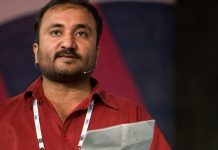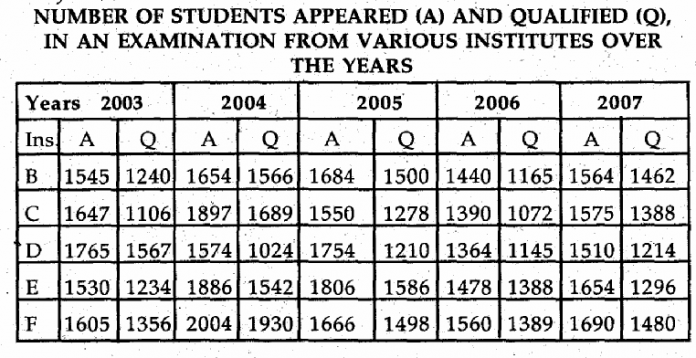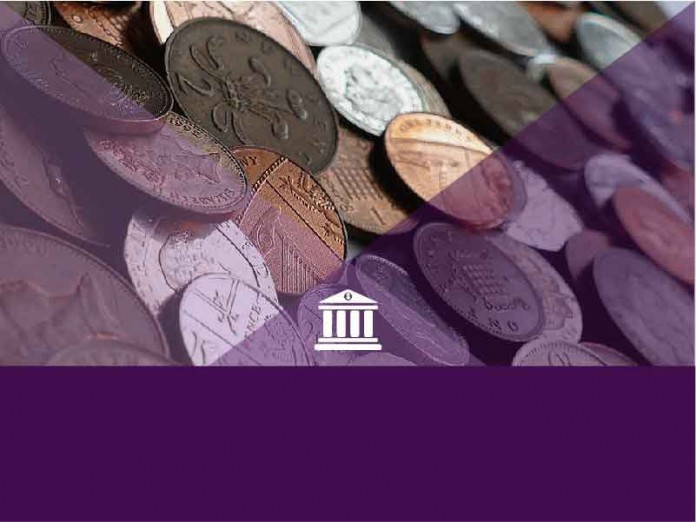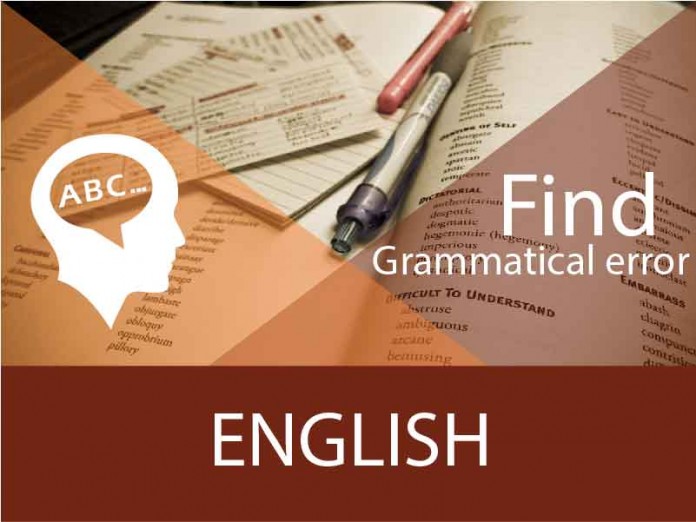prepared by ashok sharma
The Hindu: November 20, 2015 01:00 IST
Prosecuting David Headley
The arraignment of Pakistan-born American operative David Coleman Headley as a conspirator in the case relating to the Mumbai terror attacks of 2008 may appear redundant after he was sentenced to 35 years in the United States in January 2013 for his admitted role in terrorist plots in India and Denmark. It may even seem particularly strange in the light of the specific condition on which he had pleaded guilty — that he would not be extradited to India, Pakistan or Denmark. The possibility of Headley being jailed in India is less than remote, as it is unquestionably ruled out by his present legal situation. Yet, the indictment is not without meaning or significance. By making him accused number two in a case in which Syed Zabiuddin Ansari alias Abu Jundal of the Lashkar-e-Toiba has been charge-sheeted, the Special Court has opened up the possibility of Headley testifying through video-conferencing. The former U.S. intelligence agent may buttress India’s long-standing position that the LeT and its handlers in the Pakistani intelligence establishment masterminded the deadly November 26, 2008 attacks. The court has summoned him to appear before it on December 10 through video-conferencing. In fact, Headley’s promises of cooperation in his plea bargain with the U.S. authorities include “testifying in any foreign judicial proceedings held in the United States by way of deposition, video-conferencing or letters rogatory”. This aspect significantly enhances the value of his virtual presence before an Indian court. It is entirely appropriate that Headley’s admissions, of which the most relevant are parts of his testimony concerning specified LeT operatives and military officials in Pakistan in arming, preparing and despatching the Mumbai assailants, are reiterated before an Indian forum.
However, some legal questions remain. Indian law allows recording of evidence through electronic means, but can it be stretched to sentencing someone without being present in court? How far will he be able to confirm the role of Abu Jundal, who has been charged with being present in a ‘control room’ that was directing the Mumbai attackers from Pakistan? Headley did not refer to Jundal either in his court plea or during his interrogation in June 2010 by the National Investigation Agency, but it cannot be ruled out that he may have further information on the Mumbai terror plot. Besides, the prosecution may want to prove that the conspirators named by Jundal are also the ones referred to in Headley’s testimony. The U.S. may have seen to it that Headley stays in prison for long years, but it may not be easy for Indian citizens to absorb the possibility that a man who admitted his involvement in the conspiracy to murder and maim people in Mumbai will never be made answerable for them in an Indian court. As a former intelligence agent who went rogue, Headley will always be seen as one who got away lightly, and as one who was spared the rigours of Indian justice. His inclusion as a suspect may assuage such misgivings to some extent.
The Hindu: November 20, 2015 01:00 IST (editorial with Hindi or English vocab)
Prosecuting David Headley
The arraignment of Pakistan-born American operative David Coleman Headley as a conspirator(a member of a conspiracy षड्यंत्रकारी ) in the case relating to the Mumbai terror attacks of 2008 may appear redundant(more than is needed, desired, or required बेकार) after he was sentenced to 35 years in the United States in January 2013 for his admitted role in terrorist plots in India and Denmark. It may even seem particularly strange in the light of the specific condition on which he had pleaded(appeal or request earnestly निवेदन करना) guilty(responsible for or chargeable with a reprehensible act मुजरिम) — that he would not be extradited(hand over to the authorities of another country प्रत्यर्पित करना) to India, Pakistan or Denmark. ashokeditorial.wordpress.com The possibility of Headley being jailed in India is less than remote(very unlikelyअसंबद्ध), as it is unquestionably ruled out by his present legal situation. Yet, the indictment(an accusation of wrongdoing कलंक) is not without meaning or significance. By making him accused number two in a case in which Syed Zabiuddin Ansari alias Abu Jundal of the Lashkar-e-Toiba has been charge-sheeted, the Special Court has opened up the possibility of Headley testifying(provide evidence for सिद्ध करना) through video-conferencing. The former U.S. intelligence agent may buttress(make stronger or defensibleमज़बूत बना) India’s long-standing position that the LeT and its handlers in the Pakistani intelligence establishment masterminded the deadly November 26, 2008 attacks. The court has summoned(ask to come बुलवाना) him to appear before it on December 10 through video-conferencing. In fact, Headley’s promises of cooperation in his plea bargain with the U.S. authorities include “testifying in any foreign judicial proceedings held in the United States by way of deposition, video-conferencing or letters rogatory”. This aspect significantly enhances(increase अधिक करना) the value of his virtual(being actually such in almost every respectअसली) presence before an Indian court. It is entirely appropriate that Headley’s admissions, of which the most relevant are parts of his testimony concerning specified LeT operatives and military officials in Pakistan in arming, preparing and despatching(an official report भिजवाना) the Mumbai assailants, are reiterated(to say, state, or perform again बार बार कहना) before an Indian forum.
However, some legal questions remain. Indian law allows recording of evidence through electronic means, but can it be stretched to sentencing someone without being present in court? How far will he be able to confirm the role of Abu Jundal, who has been charged with being present in a ‘control room’ that was directing the Mumbai attackers from Pakistan? Headley did not refer to Jundal either in his court plea or during his interrogation(formal systematic questioning पूछताछ ) in June 2010 by the National Investigation Agency, but it cannot be ruled out that he may have further information on the Mumbai terror plot(plan). Besides, the prosecution(the institution and conduct of legal proceedings against a defendant for criminal behaviorअभियोग ) may want to prove that the conspirators(a member of a conspiracy षड्यंत्रकारी ) named by Jundal are also the ones referred to in Headley’s testimony. The U.S. may have seen to it that Headley stays in prison for long years, but it may not be easy for Indian citizens to absorb the possibility that a man who admitted his involvement in the conspiracy to murder and maim people in Mumbai will never be made answerable for them in an Indian court. As a former intelligence agent who went rogue(a deceitful and unreliable scoundrel अज्ञानी या मूढ़ मनुष्य), Headley will always be seen as one who got away lightly, and as one who was spared the rigours(the quality of being valid and rigorousकठोरता) of Indian justice. His inclusion(the state of being includedसमावेश ) as a suspect(someone who is under suspicion संदेहास्पद) may assuage(satisfy (thirst) सन्तोष देना) such misgivings(painful expectation ख़तरा) to some extent(the point or degree to which something extends हद ).
The Hindu: November 20, 2015 00:54 IST(editorial)
Planning for the next flood
Cyclonic storms on Tamil Nadu’s 1,076-km coastline are not unusual, and at least once in two years there is some disaster or the other. The common thread running through every such instance is that all claims of preparedness are invariably exposed as either hollow or woefully inadequate. The focus, as well as any claim to administrative efficiency, is solely on rescue and relief operations. What the government is able to demonstrate is only some good mobilising of human and material resources after the event. Rarely is there a reconsideration of the policy of civic planning, especially the tendency to place real estate and commercial interests above those of nature and ecology. The latest disaster to hit Tamil Nadu was not a cyclone, yet it highlighted the inadequate level of preparedness. The inundation in Chennai and its neighbouring districts exposed all the flaws in its urban planning, housing and real estate policy and water management. Scenes of large sheets of water spread across hundreds of localities, cutting off tens of thousands of people from the rest of the city, provided grim testimony to the appalling mistakes of the past. As rain battered the city, it was clear that the drainage system was either too weak or non-existent. Compounding the problem of urban waste clogging drains was widespread encroachments that have whittled down the carrying capacity of many water channels.
A big factor behind the flooding is the rampant construction of buildings on water bodies, wetlands and areas that were originally floodplains. Large tracts of land in the suburbs have seen a real estate boom. None should have been surprised by water flowing into such areas, creating islands out of apartment complexes and making whole colonies resemble fields under irrigation. There is a good deal of official patronage for the establishment of habitations on lakes and ponds. Even the Housing Board implements such projects, and planning authorities approve them routinely. Such disasters could have been prevented through planning, curbs on occupation of water bodies, and pre-monsoon desilting of drains and water channels. A key factor that ought to be taken into account is that the city needs an intricate drainage system to match its burgeoning development. With the city’s municipal limits expanded in recent years to take in dozens of smaller villages and townships, the only remedial step can be significantly enhancing civic infrastructure in the added areas. But it is a daunting task for the government to implement the real solution – keeping water bodies free of construction and habitation. Chief Minister Jayalalithaa has sanctioned Rs.500 crore for immediate relief, and sought further Central assistance. The government must also look for sound hydrological solutions to address the shortcomings in the city’s water storage and drainage system, and revisit present policy priorities. There can be no smart city without intelligent planning.
The Hindu: November 20, 2015(editorial with hindi and english vocab)
Planning for the next flood
Cyclonic(of or relating to or characteristic of a violent tropical storm चक्रवाती) storms(a violent weather condition with winds 64-72 knots (11 on the Beaufort scale) and precipitation and thunder and lightningतूफान) on Tamil Nadu’s 1,076-km coastline(the outline of a coast समुद्री किनारा) are not unusual(not usual or common or ordinary असाधारण), and at least once in two years there is some disaster(a state of extreme (usually irremediable) ruin and misfortune आपदा) or the other. The common thread running through every such instance(example) is that all claims of preparedness are invariably(without variation or change, in every case सर्वदा) exposed(with no protection or shield उजागर) as either hollow(not solid; having a space or gap or cavity खोखला) or woefully(in an unfortunate or deplorable manner खेदजनक ढंग से) inadequate(not sufficient to meet a need अपर्याप्त). The focus, as well as any claim to administrative efficiency, is solely on rescue and relief operations. What the government is able to demonstrate is only some good mobilising(make ready for action or use तैयार रखना) of human and material resources after the event. Rarely is there a reconsideration of the policy of civic planning, especially the tendency(an inclination to do something प्रवृत्ति) to place real estate and commercial interests above those of nature and ecology(the environment as it relates to living organisms पर्यावरण ). The latest disaster to hit Tamil Nadu was not a cyclone((meteorology) rapid inward circulation of air masses about a low pressure center; circling counterclockwise in the northern hemisphere and clockwise in the southern चक्रवात), yet it highlighted the inadequate level of preparedness. The inundation(the rising of a body of water and its overflowing onto normally dry land सैलाब, जलप्लावन) in Chennai and its neighbouring districts exposed all the flaws(an imperfection in an object or machine त्रुटि) in its urban planning, housing and real estate policy and water management. Scenes of large sheets of water spread across hundreds of localities, cutting off tens of thousands of people from the rest of the city, provided grim(not to be placated or appeased or moved by entreaty विकट) testimony(something that serves as evidence प्रमाण ) to the appalling(causing consternation डरावना) mistakes of the past. As rain battered(damaged by blows or hard usage) the city, it was clear that the drainage(emptying something accomplished by allowing liquid to run out of it पानी का निकास) system was either too weak or non-existent. Compounding the problem of urban waste clogging(preventing movement अवरोधक) drains was widespread encroachments(any entry into an area not previously occupied आक्रमण) that have whittled(cut small bits or pare shavings from काटना) down the carrying capacity of many water channels.
A big factor behind the flooding is the rampant(unrestrained and violent अनियंत्रित) construction of buildings on water bodies, wetlands and areas that were originally floodplains. Large tracts(an extended area of land भूभाग) of land in the suburbs have seen a real estate boom. None should have been surprised by water flowing into such areas, creating islands out of apartment complexes and making whole colonies resemble(appear like; be similar or bear a likeness to सरूप होना) fields under irrigation. There is a good deal of official patronage(the act of providing approval and support सहायता ) for the establishment of habitations(the native habitat or home of an animal or plant निवास-स्थान ) on lakes and ponds. Even the Housing Board implements such projects, and planning authorities approve them routinely. Such disasters could have been prevented through planning, curbs(an edge between a sidewalk and a roadway consisting of a line of curbstones (usually forming part of a gutter)
नियंत्रण रखना) on occupation of water bodies, and pre-monsoon desilting(clearing) of drains and water channels. A key factor that ought to be taken into account is that the city needs an intricate(having many complexly arranged elements; elaborate उलझा हुआ) drainage system to match its burgeoning(grow and flourish फलना फूलना) development. With the city’s municipal limits expanded in recent years to take in dozens of smaller villages and townships, the only remedial(tending or intended to rectify or improve उपचारात्मक) step can be significantly enhancing civic infrastructure in the added areas. But it is a daunting(discouraging through fear डरावना) task for the government to implement the real solution – keeping water bodies free of construction and habitation(housing that someone is living in मकान ). Chief Minister Jayalalithaa has sanctioned(formally approved and invested with legal authority स्वीकृत) Rs.500 crore for immediate relief, and sought further Central assistance. The government must also look for sound hydrological solutions to address the shortcomings(a failing or deficiency त्रुटि) in the city’s water storage and drainage system, and revisit present policy priorities. There can be no smart city without intelligent planning.
Business Standard (editorial)
New energy regime
On Monday, the government proposed a major change in the regime governing exploration of oil and natural gas. From the earlier profit-sharing model, future blocks will be bid out on a revenue-sharing basis. The New Exploration Licensing Policy (NELP), which has gone through nine rounds of bidding over more than a decade, is thus going be substantially altered. The earlier regime had become controversial. In order to calculate the government’s share, the private licensee’s costs had to be deducted – and this, according to the government auditor, opened up the possibility of artificially inflating or “gold-plating” those costs in order to reduce the payout to the government. Companies would bid by quoting the minimum work programme they would undertake; they could first recover their investments and only then begin sharing profits with the government. Now, however, bids will have to specify the share of revenue the government will receive from oil and gas blocks being sold, depending on the stage of production and on the overall fuel market scenario.
The industry is pleased with the new policy; one participant was quoted in this newspaper as suggesting that the new regime would lead to investments worth $50-$60 billion (Rs 3.25 lakh crore to Rs 3.9 lakh crore, according to the current exchange rate). Perhaps that is less due to the structure of revenue sharing than to other promised aspects of the policy. For one, companies involved in natural gas production might now be permitted pricing and marketing freedom, as opposed to the complicated and contested formulae for pricing that exist in the current case. Companies are also pleased at the possibility of “uniform licensing” that would grant them the right to explore various hydrocarbons in the block that they win at auctions – methane, shale oil, and so on. Finally, there might be a shift to “open acreage”, in which companies can bid for blocks that they wish to explore, and then it is up to the regulator to “authenticate” the geological data. These – especially pricing freedom – might attract investment.
However, a certain degree of caution is warranted. Simply put, the NELP process – however difficult to administer – did have certain theoretical advantages in structure particularly with regard to deep-sea exploration. On the high seas, the risks and costs associated with exploration are high; cost recovery and a defined block with geological data did reduce perceived risks. In addition, if the final policy requires companies to fix a profile for their eventual oil and gas recovered, it may prove excessively restrictive, and a serious disincentive. Eventually, however, the proof of the proverbial pudding shall be in the eating. The purpose of exploration policy is to unlock petroleum reserves and attract investment; if investment increases as a result of this change, then that is what matters. Certainly, what is welcome is that the government has taken the long view: that it has recognised that it is expanding infrastructure that matters, not maximising year-to-year revenue. This is a sensible approach, and one that has not been visible in many other sectors in the past few years.
Business Standard (editorial with hindi and English vocab)
New energy regime
On Monday, the government proposed a major change in the regime(he organization that is the governing authority of a political unit शासन पद्वति) governing exploration(a careful systematic search खोज) of oil and natural gas. From the earlier profit-sharing model, future blocks will be bid out on a revenue-sharing basis. ashokeditorial.wordpress.com The New Exploration Licensing Policy (NELP), which has gone through nine rounds of bidding over more than a decade, is thus going be substantially(to a great extent or degree वास्तव में) altered(changed in form or character without becoming something else बदला). The earlier regime had become controversial. In order to calculate the government’s share, the private licensee’s costs had to be deducted – and this, according to the government auditor, opened up the possibility of artificially inflating(exaggerate or make bigger बढ़ाना) or “gold-plating” those costs in order to reduce the payout(payout बड़ा भुगतान) to the government. Companies would bid by quoting the minimum work programme they would undertake; they could first recover their investments and only then begin sharing profits with the government. Now, however, bids will have to specify the share of revenue the government will receive from oil and gas blocks being sold, depending on the stage of production and on the overall fuel market scenario.
The industry is pleased(happy) with the new policy; one participant was quoted in this newspaper as suggesting that the new regime would lead to investments worth $50-$60 billion (Rs 3.25 lakh crore to Rs 3.9 lakh crore, according to the current exchange rate). Perhaps that is less due to the structure of revenue sharing than to other promised aspects of the policy. For one, companies involved in natural gas production might now be permitted pricing and marketing freedom, as opposed to the complicated(difficult to analyze or understand जटिल) and contested(a struggle between rivals संघर्ष) formulae for pricing that exist in the current case. Companies are also pleased at the possibility of “uniform licensing” that would grant them the right to explore various hydrocarbons in the block that they win at auctions – methane, shale oil, and so on. Finally, there might be a shift to “open acreage(an area of ground used for some particular purpose (such as building or farming) कई वर्ग भूमि)”, in which companies can bid for blocks that they wish to explore(inquire into खोजना), and then it is up to the regulator to “authenticate” the geological data. These – especially pricing freedom – might attract investment.
However, a certain degree of caution is warranted( अनुबद्ध). Simply put, the NELP process – however difficult to administer – did have certain theoretical advantages in structure particularly with regard to deep-sea exploration. On the high seas, the risks and costs associated with exploration are high; cost recovery and a defined block with geological data did reduce perceived(detected by instinct or inference rather than by recognized perceptual cues कथित) risks. In addition, if the final policy requires companies to fix a profile for their eventual(expected to follow in the indefinite future from causes already operating फलस्वरूप) oil and gas recovered, it may prove excessively restrictive, and a serious disincentive(a negative motivational influence हतोत्साहित). Eventually, however, the proof of the proverbial(widely known and spoken of लौकिक) pudding
9any of various soft thick unsweetened baked dishes एक प्रकार का पकवान) shall be in the eating. The purpose of exploration policy is to unlock petroleum reserves and attract investment; if investment increases as a result of this change, then that is what matters. Certainly, what is welcome is that the government has taken the long view: that it has recognised that it is expanding infrastructure that matters, not maximising year-to-year revenue. This is a sensible approach, and one that has not been visible in many other sectors in the past few years.
Indian Express (Editorial)
Bobby’s run
Now that Louisiana Governor Bobby Jindal has quit the race for the Republican presidential nomination, it’s time to pick up the pieces of this great Indian-American — or, just plain American — dream. Jindal, along with fellow governors like Rick Perry and Scott Walker, was the reward for a Republican Party hoping to capitalise on smart candidates with unquestionable experience in governance. But the Republican National Committee couldn’t help them. Jindal’s decision to exit owes to his persistence as a second-tier candidate, kept out of the main debates. Jindal may claim that this isn’t his time, but his campaign’s failure has deeper roots.
Who, or what, is Bobby Jindal? It’s unkind to raise questions about identity, especially when an individual expressly eschews it. Jindal’s dislike for hyphenated identities, his insistence that immigrants come to America to be Americans and not Indian-Americans or Irish-Americans, etc, never went down well with the Indian-American community. Yet, what personal identity an immigrant or a child of immigrants chooses for herself is incontestable. It is rather Jindal’s hawkish position on immigration that not only liberals but, increasingly, conservatives find out of joint, too. When David Cameron, heading a Conservative government, declares at Wembley that the day isn’t far when a British citizen of Indian origin will be prime minister, or when German Chancellor Angela Merkel, heading a Christian Democrat administration, becomes the face of humanity for refugees fleeing war, it’s clear that the mainstream right has marched ahead while the Jindal Republicans have stepped back.
Ironically, Jindal’s term in office has distinguished him as one of the most innovative thinkers on policy in US politics today. But he couldn’t convince the national GOP base. Perhaps the reason lies in his failure to resolve the dichotomy in his political identity — would he unpack his technocratic sharpness or recede into populism?
Indian Express (Editorial with hindi or english vocab)
Bobby’s run
Now that Louisiana Governor Bobby Jindal has quit the race for the Republican presidential nomination, it’s time to pick up the pieces of this great Indian-American — or, just plain American — dream. Jindal, along with fellow governors like Rick Perry and Scott Walker, was the reward for a Republican Party hoping to capitalise(draw advantages from लाभ उठाना) on smart candidates with unquestionable experience in governance. But the Republican National Committee couldn’t help them. Jindal’s decision to exit owes to his persistence as a second-tier candidate, kept out of the main debates. Jindal may claim that this isn’t his time, but his campaign’s failure has deeper roots.
Who, or what, is Bobby Jindal? It’s unkind to raise questions about identity, especially when an individual expressly eschews(avoid and stay away from deliberately; stay clear of परहेज़ करना) it. Jindal’s dislike for hyphenated(divide or connect with a hyphen हाइफ़न से शब्दों को जोड़ना) identities, his insistence(continual and persistent demands अनुरोध) that immigrants(a person who comes to a country where they were not born in order to settle there किसी देश में जाने वाला) come to America to be Americans and not Indian-Americans or Irish-Americans, etc, never went down well with the Indian-American community. ashokeditorial.wordpress.com Yet, what personal identity an immigrant or a child of immigrants chooses for herself is incontestable(incapable of being contested or disputed निर्विवाद). It is rather Jindal’s hawkish(disposed to warfare or hard-line policies युद्धकारी) position on immigration that not only liberals but, increasingly, conservatives find out of joint, too. When David Cameron, heading a Conservative(resistant to change रूढ़िवादी) government, declares at Wembley that the day isn’t far when a British citizen of Indian origin will be prime minister, or when German Chancellor Angela Merkel, heading a Christian Democrat administration, becomes the face of humanity for refugees fleeing war, it’s clear that the mainstream right has marched ahead while the Jindal Republicans have stepped back.
Ironically(contrary to plan or expectation प्रतिकूल तरीके से), Jindal’s term in office has distinguished him as one of the most innovative thinkers on policy in US politics today. But he couldn’t convince the national GOP base. Perhaps the reason lies in his failure to resolve the dichotomy(being twofold द्विभाजन) in his political identity — would he unpack his technocratic sharpness or recede(pull back or move away or backward पीछे हटाना) into populism(the political doctrine that supports the rights and powers of the common people in their struggle with the privileged elite लोकप्रियता)?
Nov 20 2015 : The Times of India (Ahmedabad)(Editorial)
Owning Up To IS
It’s not West vs Islam, Paris attacks require a rational rather than emotional response
Responding to the Paris terror attacks, President Obama has said it is time the Muslim world asked itself some tough questions about how extremist ideologies take root in its midst. That is certainly pertinent, but such questioning should not be confined to the Muslim world alone. Leaders in the West, led by the US, also need to ask themselves some tough questions on what led to the flowering of Islamic State (IS). The firing on Paris streets also represents the backfiring of Western strategy.
The idiotic US military intervention in Iraq, with the express intention of toppling Saddam Hussein’s government but also with a glad eye on Iraq’s oil riches, destroyed the Iraqi state and sowed chaos. IS was adept at filling this vacuum even as America got tired of the mayhem and left. Neither have such interventions been confined to the Bush era. The US and France intervened in Libya in 2011; even more foolishly, they intervened in the Sunni-Shia civil war raging in the Muslim world, partnering a Wahhabi state such as Saudi Arabia. Thus the US, UK, France and Saudi Arabia all participated in the “Friends of Syria“ group, which funnelled arms and money to jihadists who have morphed into today’s IS.
Following the template establis hed by the US, Russia too decided to intervene in Ukraine. This template is spreading insecurity and chaos across the world, of which the 129 dead in Paris are the most recent though not the worst victims (the 3,00,000 dead and millions of refugees from the Syrian civil war would comprise the latter category). IS now controls a great deal of territory in Iraq and Syria. There will be more victims in the days to come. Bombing runs by French or Russian or American jets won’t change any of this, except for the worse.
This should prompt a change in the world order whereby the great powers, Russia included, agree to respect national sovereignty and rule out unilateral military interventions or proxy wars to change governments in other countries. Obama’s meeting with President Putin during the G20 summit in Turkey, where they agreed on a political transition plan to end the Syrian civil war that would be Syrian-owned, is a promising start. IS, of course, would stand in the way of a political solution. But any military intervention to squeeze out IS should proceed only after being authorised by the UN, thus establishing a healthy precedent for the future.
Nov 20 2015 : The Times of India (Ahmedabad)(Editorial with vocab) Owning Up To IS It’s not West vs Islam, Paris attacks require a rational(consistent with or based on or using reason तर्कयुक्त) rather than emotional response Responding to the Paris terror attacks, President Obama has said it is time the Muslim world asked itself some tough questions about how extremist ideologies(imaginary or visionary theorization विचारधारा ) take root in its midst(the location of something surrounded by other things बीच). That is certainly pertinent(having precise or logical relevance to the matter at hand उपयुक्त), but such questioning should not be confined(not free to move about सीमित) to the Muslim world alone. Leaders in the West, led by the US, also need to ask themselves some tough questions on what led to the flowering of Islamic State (IS). The firing on Paris streets also represents the backfiring(come back to the originator of an action with an undesired effect उल्टी प्रतिक्रिया होना) of Western strategy. The idiotic(insanely irresponsible मूर्खतापूर्ण) US military intervention(the act of intervening हस्तक्षेप ) in Iraq, with the express intention of toppling(cause to topple or tumble by pushing गिरा देना) Saddam Hussein’s government but also with a glad eye on Iraq’s oil riches, destroyed the Iraqi state and sowed(place (seeds) in or on the ground for future growth रोपना) chaos(a state of extreme confusion and disorder अव्यवस्था). IS was adept(having or showing knowledge and skill and aptitude कुशल) at filling this vacuum even as America got tired of the mayhem(violent and needless disturbance उत्पात) and left. Neither have such interventions been confined to the Bush era. The US and France intervened in Libya in 2011; even more foolishly, they intervened in the Sunni-Shia civil war raging in the Muslim world, partnering a Wahhabi state such as Saudi Arabia. Thus the US, UK, France and Saudi Arabia all participated in the “Friends of Syria“ group, which funnelled(move or pour through a funnel डालना) arms and money to jihadists who have morphed(cause to change shape आकार बदलना) into today’s IS. ashokeditorial.wordpress.com Following the template(a model or standard for making comparisons नमूना) established by the US, Russia too decided to intervene in Ukraine. This template is spreading insecurity and chaos across the world, of which the 129 dead in Paris are the most recent though not the worst victims (the 3,00,000 dead and millions of refugees from the Syrian civil war would comprise the latter category). IS now controls a great deal of territory in Iraq and Syria. There will be more victims in the days to come. Bombing runs by French or Russian or American jets won’t change any of this, except for the worse. This should prompt(ready and willing or quick to act तात्कालिक) a change in the world order whereby the great powers, Russia included, agree to respect national sovereignty and rule out unilateral military interventions or proxy wars to change governments in other countries. Obama’s meeting with President Putin during the G20 summit in Turkey, where they agreed on a political transition plan to end the Syrian civil war that would be Syrian-owned, is a promising start. IS, of course, would stand in the way of a political solution. But any military intervention to squeeze out(obtain with difficulty निचोड़ना) IS should proceed only after being authorised by the UN, thus establishing a healthy precedent(preceding in time, order, or significance मिसाल) for the future.
Nov 20 2015 : The Economic Times (Mumbai) (Editorial)
Settle Vodafone Tax Dispute Amicably
Vodafone has reportedly offered to go for conciliation on its . 20,000-crore tax dispute. An amicable settlement makes eminent sense. Arbitration has made no headway , and is cumber some. The government should be content to collect the origin al tax claim and set aside interest and penalty . The huge capi tal gain that Hutchison made while selling its stake in the joint venture telecom company in India to Vodafone was enabled in general, by the stable conditions provided by the govern ment to allow smooth conduct of business and, in particular by the policy of charging no upfront payment for spectrum, so as to free up telecom service providers’ resources for invest ment in a low-tariff, high-volume business. The government of India is entitled to a share of this capital gain, in principle.
The only question was if extant law articulated this principle sufficiently in the case of an indirect transfer. It did, ruled the Bombay High Court; it did not, said the Supreme Court. Hence, the government clarified, with retrospective effect that it did. The main question is if the transferred company derives value from its economic activity in India. Conciliati on with Vodafone would require similar treatment of other similar cases, the case for which is strengthened by a ruling of the Madras High Court, “If taxes were payable due to a ret rospective amendment, interest for shortfall of taxes is not leviable as the taxpayer can estimate his current income and related tax liability only based on the law that exists at the time of payment of tax.“
This point was endorsed by the Shome committee as well The government, which has vowed to settle legacy tax issues should be pragmatic. Legal wrangles must end. Provided Vo dafone’s offer of reconciliation is being made in good faith.
Nov 20 2015 :The Economic Times(Editorial with vocab)
Settle Vodafone Tax Dispute
Amicably Vodafone has reportedly(according to reports or other information खबरों के अनुसार) offered to go for conciliation(the act of placating and overcoming distrust and animosity समझौता ) on its . 20,000-crore tax dispute(a disagreement or argument about something important मतभेद ). An amicable(characterized by friendship and good will उपकारी) settlement makes eminent(standing above others in quality or position उत्कृष्ट) sense. Arbitration(the act of deciding as an arbiter; giving authoritative judgment मध्यस्थता ) has made no headway(forward movement प्रगति) , and is cumbersome(difficult to handle or use especially because of size or weight जटिल). The government should be content(satisfied or showing satisfaction with things as they are रजामन्दी) to collect the origin al tax claim and set aside interest and penalty . The huge capital gain that Hutchison made while selling its stake in the joint venture telecom company in India to Vodafone was enabled in general, by the stable conditions provided by the government to allow smooth conduct of business and, in particular by the policy of charging no upfront(frank and honest पहले) payment for spectrum, so as to free up telecom service providers’ resources for investment in a low-tariff, high-volume business. The government of India is entitled(qualified for by right according to law अधिकारी) to a share of this capital gain, in principle. The only question was if extant(still in existence वर्तमान) law articulated(consisting of segments held together by joints व्यक्त) this principle sufficiently in the case of an indirect transfer. It did, ruled the Bombay High Court; it did not, said the Supreme Court. Hence, the government clarified, with retrospective(concerned with or related to the past बीते हुए पर लागू) effect that it did. The main question is if the transferred company derives(come from विरासत में पाना) value from its economic activity in India. Conciliation(the state of manifesting goodwill and cooperation after being reconciled समाधान) with Vodafone would require similar treatment of other similar cases, the case for which is strengthened by a ruling of the Madras High Court, “If taxes were payable due to a retrospective amendment(the act of amending or correcting संशोधन ), interest for shortfall(the property of being an amount by which something is less than expected or required घाटा) of taxes is not leviable(आरोप्य ) as the taxpayer can estimate his current income and related tax liability only based on the law that exists at the time of payment of tax. ashokeditorial.wordpress.com “ This point was endorsed( समर्थित) by the Shome committee as well The government, which has vowed(make a vow; promise क़सम) to settle legacy tax issues should be pragmatic(concerned with practical matters व्यावहारिक). Legal wrangles(an angry dispute लड़ाई) must end. Provided Vodafone’s offer of reconciliation(the reestablishing of cordial relations मेल-मिलाप) is being made in good faith.
The Dawn(editorial)
Islamophobia in the West
THE backlash was expected from the moment the grisly events on Friday evening in Paris last week began to unfold. Muslims across Europe and North America braced themselves for the ‘tsunami of hatred’ — as some of them put it — that they knew was coming.
Those apprehensions have been more than realised in the deluge of threats against the community: venomous phone and online messages; vandalism of mosques, Islamic centres and Muslim-owned businesses; individuals clearly identifiable as Muslim physically attacked; and vigils by Muslims for the Paris victims disrupted by racist, Islamophobic abuse.
Some politicians have capitalised on last week’s massacre to whip up already simmering sentiment against giving asylum to largely Muslim refugees fleeing war-torn Syria.
Governors of at least 26 US states have said they would bar Syrian refugees from resettlement in their states. Poland has called for a revision of the EU policy on the migrant crisis; Hungary and Czechoslovakia reiterated the view that terrorists would slip into the continent amongst the droves of refugees and wreak mayhem.
In short, it is exactly as the militant Islamic State group which carried out the massacre in the French capital, might have hoped.
There have been considerable level-headed analyses in the media along these lines; many individuals — including some family members of the Paris victims — have also written movingly about their refusal to succumb to blind hatred that can only serve the militant organisation’s ends. However, right-wing hysteria — often underwritten by cynical political agendas — is firmly in the ascendant.
At this juncture, world leaders need to demonstrate statesmanship and a more nuanced understanding of the situation instead of pandering to their base. Referring to the migrant crisis, President Barack Obama has tried to steer the narrative in a more considered direction by saying, “We do not close our hearts to these victims of such violence and somehow start equating the issue of refugees with the issue of terrorism”.
His observation that there could not be “a more potent recruitment tool for [IS] than some of the rhetoric coming out of here in the course of this debate” aptly highlights the danger posed by the non-Muslim world giving in to xenophobic impulses.
President François Hollande too has also categorically stated that Islamophobia will not be tolerated. There need to be far more calls for restraint coming from the West.
At the same time, it is also a fact that Islamist violence in the world today has its genesis in long-festering grievances — unacknowledged, trivialised or deliberately misrepresented — such as the situation in Palestine, Kashmir, Chechnya etc.
Without addressing these issues in a meaningful way, there can be no real, long-term resolution of militancy.
Meanwhile, for its part, the Muslim world, through the organisations that claim to represent it, needs to craft a collective, hard-hitting response to the depredations being committed in the name of Islam.
The Dawn (editorial with vocab)
Islamophobia in the West
THE backlash(a movement back from an impact प्रतिघात) was expected from the moment the grisly( inspiring horror डरावना) events on Friday evening in Paris last week began to unfold. Muslims across Europe and North America braced(prepare (oneself) for something unpleasant or difficult तैयार करना) themselves for the ‘tsunami of hatred’ — as some of them put it — that they knew was coming.
Those apprehensions(fearful expectation or anticipation डर) have been more than realised in the deluge(an overwhelming number or amount धारा) of threats against the community: venomous(extremely poisonous or injurious जहरीला) phone and online messages; vandalism(willful wanton and malicious destruction of the property of others जानबूझ कर माल की हानि करना) of mosques, Islamic centres and Muslim-owned businesses; individuals clearly identifiable as Muslim physically attacked; and vigils(v चौकसी ) by Muslims for the Paris victims disrupted(marked by breaks or gaps बाधित) by racist, Islamophobic abuse.
Some politicians have capitalised on last week’s massacre(the savage and excessive killing of many people हत्याकाण्ड) to whip up(prepare or cook quickly or hastily तैयार करना) already simmering(temperature just below the boiling point गुनगुनाहट) sentiment against giving asylum(a shelter from danger or hardship शरणस्थान) to largely Muslim refugees fleeing(run away quickly फरार होना) war-torn Syria.
Governors of at least 26 US states have said they would bar Syrian refugees from resettlement in their states. Poland has called for a revision of the EU policy on the migrant crisis; Hungary and Czechoslovakia reiterated(to say, state, or perform again बार बार कहना) the view that terrorists would slip into the continent amongst the droves of refugees and wreak(cause to happen or to occur as a consequence क्रोध में करना) mayhem(violent and needless disturbanceअशांति).
In short, it is exactly as the militant Islamic State group which carried out the massacre in the French capital, might have hoped.
There have been considerable level-headed analyses in the media along these lines; many individuals — including some family members of the Paris victims — have also written movingly about their refusal to succumb(consent reluctantly अधीन होना) to blind hatred that can only serve the militant(disposed to warfare or hard-line policies लड़ाका) organisation’s ends. However, right-wing hysteria(state of violent mental agitation एक प्रकार की मूर्छा जो विशेषकर स्त्रियों को होती है) — often underwritten by cynical (believing the worst of human nature and motives; having a sneering disbelief in e.g. selflessness of others दोषदर्षी)political agendas — is firmly in the ascendant(tending or directed upward प्रभावी स्थिति में).
At this juncture(n event that occurs at a critical time परिस्थिति), world leaders need to demonstrate statesmanship(wisdom in the management of public affairs शासन कला) and a more nuanced(a subtle difference in meaning or opinion or attitude बारीकी) understanding of the situation instead of pandering(yield (to); give satisfaction to मददगार) to their base. Referring to the migrant crisis, President Barack Obama has tried to steer the narrative in a more considered direction by saying, “We do not close our hearts to these victims of such violence and somehow start equating the issue of refugees with the issue of terrorism”.
His observation that there could not be “a more potent recruitment tool for [IS] than some of the rhetoric(using language effectively to please or persuade व्याख्यान विद्या) coming out of here in the course of this debate” aptly(with competence कुशलतापूर्वक) highlights the danger posed by the non-Muslim world giving in to xenophobic(suffering from xenophobia having abnormal fear or hatred of the strange or foreign अज्ञातजनभीत) impulses(an instinctive motive प्रभाव ).ashokeditorial.wordpress.com
President François Hollande too has also categorically stated that Islamophobia will not be tolerated. There need to be far more calls for restraint(the act of controlling by restraining someone or something रोकथाम )coming from the West.
At the same time, it is also a fact that Islamist violence in the world today has its genesis(a coming into being उत्पत्ति) in long-festering(a fluid product of inflammation पीप ) grievances(a resentment strong enough to justify retaliation अन्याय) — unacknowledged, trivialised(make trivial or insignificant महत्वहीन बनाना) or deliberately(with intention जान-बूझकर) misrepresented — such as the situation in Palestine, Kashmir, Chechnya etc.
Without addressing these issues in a meaningful way, there can be no real, long-term resolution of militancy.
Meanwhile, for its part, the Muslim world, through the organisations that claim to represent it, needs to craft a collective, hard-hitting response to the depredations(an act of plundering and pillaging and marauding लूटमार) being committed(bound or obligated, वचनबद्ध) in the name of Islam.
















 Pie Chart Question
Pie Chart Question







